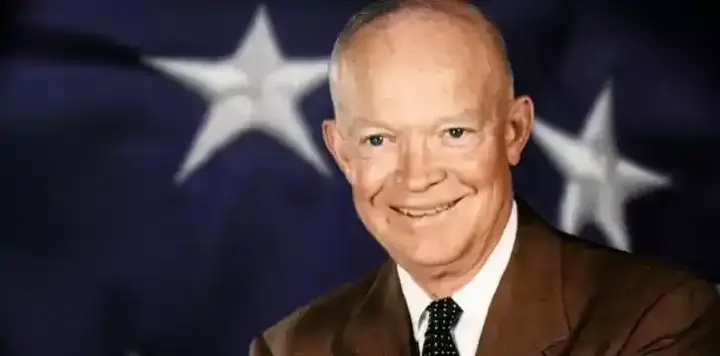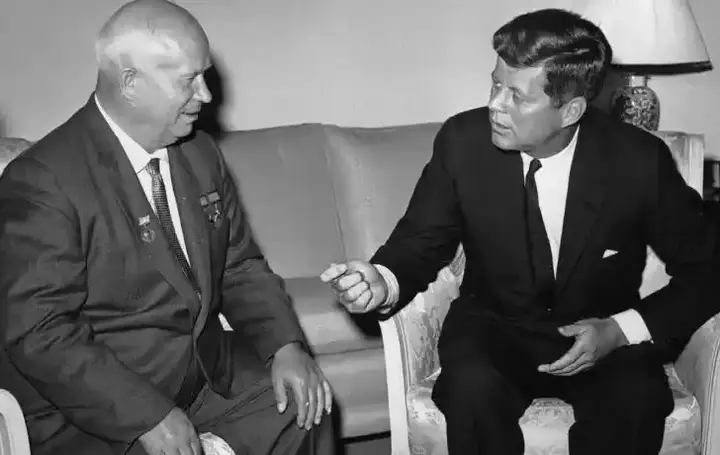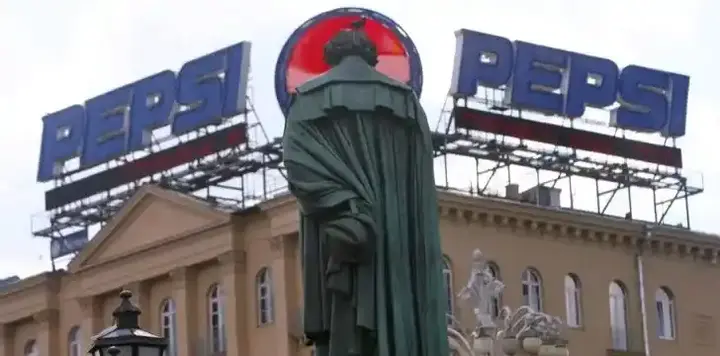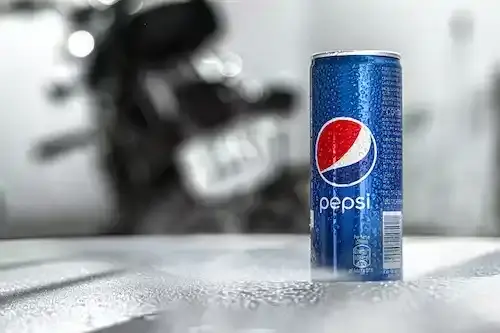How did Pepsi become the sixth largest army in the world?
Yes, I'm talking about PepsiCo's competitor to/claim to the Coca-Cola throne – it's become the sixth largest army in the world... For a short time only anyway.
Show key points
- During the Cold War, Pepsi unexpectedly became a key player in U.S.-Soviet relations due to its role in cultural diplomacy.
- A heated debate in 1959 between Nixon and Khrushchev at the American National Exhibition was unexpectedly diffused by Pepsi’s vice president offering the Soviet leader a glass of Pepsi.
- Khrushchev’s unexpected love for Pepsi led to the USSR lifting a cultural ban and importing the beverage in large quantities.
- ADVERTISEMENT
- Due to international currency limitations, the USSR paid for Pepsi in vodka, initiating an unusual bartering arrangement that lasted for years.
- When the vodka-for-Pepsi deal ended, the USSR compensated Pepsi with a massive fleet of military equipment worth $3 billion.
- This transfer briefly made PepsiCo the owner of the sixth largest naval force in the world.
- Instead of using the military assets, Pepsi sold the entire fleet for scrap to a Swedish company, ending its short-lived status as a military superpower.
Now, you have to ask yourself: how can a soft drink company have enough military power to wage war on any second or third world country and win it?
Well, this crazy chain of events, like many events in recent history, was a product of the Cold War.
U.S. National Gallery.

In 1959, U.S. President Dwight D. Eisenhower was very happy with the way things were going in the United States.
Thus, he decided to give a slice of the American dream to his communist counterparts and show how wonderful capitalism really is.
Therefore, the Eisenhower administration held the American National Exhibition in Moscow and sent only then-Vice President Richard Nixon there to attend the opening and give lyrical speeches about the American way of life.
Recommend
While Nixon was there, showing off electric potato peeling tools and other wonders of Western capitalism and consumerism, he had a discussion with then-Soviet Prime Minister Nikita Khrushchev.
The debate turned into controversy... Raged... It exploded into a full-blown argument.
Both Nixon and Khrushchev were trying to convince each other that their lifestyle was the best.
It was a direct argument between capitalism and communism between two of the biggest players on each side.
Nixon's head was swaying outward in that angry chicken fashion, Khrushchev was poking with his bone finger, and Khrushchev's rolls were tighter than the reel of nursery carols.
And then — just when it looked like they were about to take off their shirts and settle their dispute in the style of the deadly conflict of the Cold War — Pepsi vice president, who was at the show, intervened.
In an attempt to pacify the Soviet prime minister, he said something along the lines of "Yo! " Dear Khrushchev, calm down and enjoy this," he said, then lifted a glass of Pepsi.
To everyone's surprise, Khrushchev accepted the cup and drank it.
And the biggest surprise of all is that he absolutely loved her!
At the end of the day, I think there was logic in Kendall Jenner's announcement of Pepsi...
Blue Brew and Red Nation

Two years later, Khrushchev craved those delicious soft drinks that made him happy, so he decided to remove Pepsi from the Soviet cultural blacklist and import its products in bulk to the Soviet Union.
Now, the difficult part of this agreement is determining the actual deal to buy things.
The Soviet ruble was not an accepted currency worldwide, and as such Khrushchev had to make a different kind of deal with the soft drink magnate.
To do so, Khrushchev turned to one of Russia's most abundant resources and used it as a currency swap.
And you wonder what is this abundant Russian resource?
Vodka!
The USSR struck a deal with Pepsi where vodka would be exchanged instead of currency, and this lasted until the late eighties.
Pepsi rule, Pepsi controls the waves.

After the end of the Soviet Union's initial agreement with PepsiCo, Pepsi no longer agreed to buy increasing quantities of luxury Russian vodka.
Since the Soviet ruble was not a currency accepted worldwide, Pepsi needed to seal a new deal.
So the Soviet Union decided to replace Pepsi with something else that was present in abundance.
War machines.
A massive fleet of war machines worth $3 billion!
The new agreement saw Pepsi receive a full naval fleet consisting of at least 17 attack submarines, destroyers, a frigate and a giant cruiser!
Once the deal is done, paperwork is signed, and keys are exchanged, Pepsi is now the sixth largest military force in the world!
What did you do with all this force? Did you behave like the entire East India Company and control the whole trade on the waves (seas) as you hoped to do?
No!
She sold it all at face value to a Swedish scrap metal company. What a disappointment.

That, just there, represents how Pepsi went from a soft drink company to the sixth largest army in the world, and then back into a soft drink company again.








